The Ten Best Movies I Saw in 2021
As always, these are my choices among all the movies I saw in 2021, not my choices among the all movies released in 2021.

Three of the films I'm ranking as among my ten best for this year are music documentaries constructed out of re-discovered and re-worked existing footage, and of those three, the purest example, the only that works best as a movie, is without a doubt Amazing Grace. Filmed by Sydney Pollack, this movie captured the live recording of Aretha Franklin's famed gospel album of the same name, January 13 and 14, 1972, at the New Temple Missionary Baptist Church in Los Angeles. The audio couldn't be synchronized with the visuals, so the tapes were left in a studio vault for 35 years, after which began a 10-year legal battle to get the finished film actually shown. The results are worth the wait. The movie has tremendous music; that's to be expected. Even greater is the fact that it ends up being a tremendous cultural and anthropological and historical document as well, capturing the intense, even pentecostal, spirituality which attended the heady alchemy of spirituals, soul music, and rhythm and blues which could be heard in Black churches throughout the early 1970s. The penultimate number from the second night, "Never Grow Old," shows a Franklin caught up in the spirit, one of the most moving visuals I've ever seen. A great, important film.


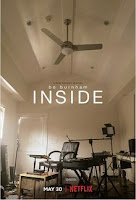

I'd heard much praise for the original Swedish Let the Right One In over the years; all I can say is that it's all deserved. Such a strange, creeping, compelling story of bleakness and the weird feelings of love and friendship and attachment which can emerge in the midst of such darkness nonetheless. There's all sorts of marvelous little details in this vampire story; many simply emphasize its omnipresent darkness (the fact that little Oskar is clearly a budding sociopath, surrounded by other fully developed sociopaths) but others surprisingly become a counterpoint to it (Virginia's suicide becomes, in retrospect, almost a hopeful sign of someone trying to hold to the light in the midst of a descent into banal horror). A solid, provocative, kind of lovely horror movie.
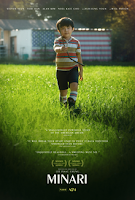
Minari is a glorious, humble ode to family and nature, though not, I think, in any kind of romantic way. The family in question is one of constant arguments and deep divides; the natural world is one whose bounty is only incidentally (and at the film's conclusion) shown to be given freely, otherwise being depicted as something that has to be wrested out of the ground with hard labor. Through it all, though, there are constant returns to quotidian decency: David and Anne writing notes, begging their parents to stop fighting; Soon-ja defending the children against unnecessary discipline and bonding with them over games of hanafuda; Paul as a strange kind of guardian angel, guiding the family, against their own expectations, to a spiritual connection with the land. It's a beautiful movie in every way.

Despite being, I think, more familiar with the history of pop music than the average radio-listener in America, I had never heard of the 1969 Harlem Cultural Festival before, and thus was like millions of others who, when this film was released, was in for a serious education. Summer of Soul really deserves the Get Back treatment; I could have watched nearly 8 hours of these lost performances from more than a half-century ago, and I hope the filmmakers eventually make available on dvd extended takes of these wonderful performances, from the more than 40 hours of footage which is apparently available. But for now, seeing these clips along with contemporary interviewers--for whatever it's worth, my favorite moments were the 5th Dimension (not milquetoast at all!) rocking "Age of Aquarius," and the Reverend Jesse Jackson (still very much the young civil rights radical, before age and ambition took its toll) leading everyone in prayer--made for marvelous viewing.
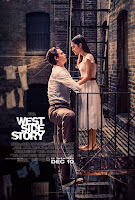
West Side Story was never my favorite Hollywood musical; while there were segments of the 1961 version that I still consider today probably the most powerful combinations of song, scenery, and dance that I've ever seen on film, over all the elements of the movies story which, in 2021, can't help, I think, but be received as both kind of racist and kind of ridiculous weighed it down. Spielberg's fabulous remake of West Side Story doesn't fix all of that; in some ways, the occasionally heavy-handed script which Kushner developed merely swapped one set of eye-rolling moments for another. But for all that: this is a terrific movie musical. "Dance at the Gym" had me dancing in my seat at the theater, the setting and performance of "One Hand, One Heart" was totally convincing, and giving "Somewhere" to Rita Morena was a genius decision. I was especially captivated by Ansel Elgort's Tony; he made the weakest part of the 1961 movie into, in my view, the strongest part of the 2021 version. So while some parts of this remake didn't fully work for me, those limitations can't stop this brilliantly visualized and executed cinematic creation from landing on my top ten list.
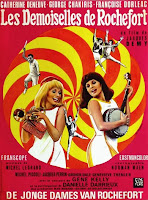
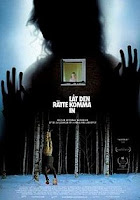

No comments:
Post a Comment